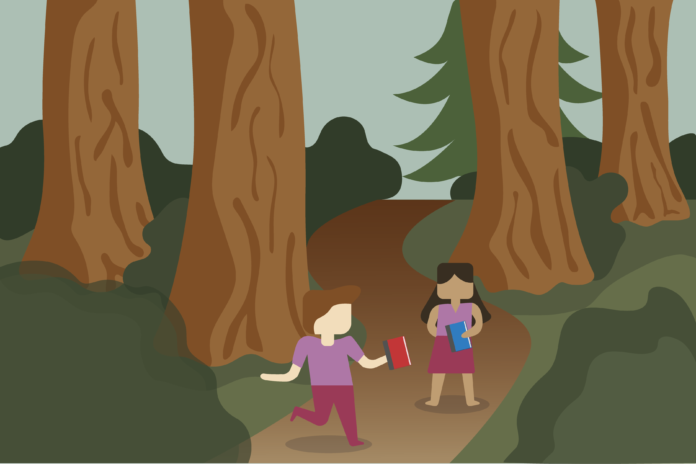The Redwood SEED Scholars Program, launched in the fall of 2021, is a four-year inclusive college program for students with intellectual disabilities
By KAYA DO-KHANH — campus@theaggie.org
The UC Davis Redwood SEED (Supported Education to Elevate Diversity) Scholars Program is the first four-year inclusive college program with a residential area for students with intellectual disabilities in California. Beth Foraker, an instructor for the School of Education, and Leonard Abbeduto, the director of the Medical Investigation of Neurodevelopmental Disorders (MIND) Institute, are co-directors of the program.
“[The purpose of the program is] to provide a full college experience that leads to competitive integrated employment for young people with intellectual and developmental disabilities,” Abbeduto said via email. “This is important since so few people with intellectual and developmental disabilities have the opportunity for post-secondary education and the personal growth that it promotes and few end up with jobs that pay a living wage and are in inclusive environments.”
Since the 1960s, there have been programs for students with intellectual disabilities from preschool through 12th grade in the Davis area, according to Foraker. The addition of the Redwood SEED Scholars Program makes Davis the first city in the state with preschool to four-year college inclusion.
“We have data from other places, and we know that if you finish our program, a four-year program, you have between a 65-80% chance of getting a living wage at graduation,” Foraker said. “We know that building these skills — independent living, employment skills, communication skills and academic skills — will launch them into a real chance at living in their community on their terms and having a job that pays them enough to pursue their hopes and dreams.”
The program welcomed its first group of 12 students in the fall of 2021. Nine of these students continued with the program for the year and engaged in on-campus dormitory living, college courses, social activities and internship opportunities.
“We had 23 that we thought would be a good fit for our program, and of those 23, two-thirds of those people had never even spent one night away from home,” Foraker said. “The nine were very successful, and they grew so much. Their emotional growth, communication skills, ability to deal with complex problems and sticking with the classes that they were taking — all of it has been really beautiful.”
This year, the students are taking their first college course, NUT 10: Discoveries and Concepts in Nutrition, which is a popular course among UC Davis students.
“It is amazing the ripple effect it has, not only for our scholars and their mentors, but for typical UC Davis students all around who are getting to see, ‘Oh, look, there’s somebody here that looks a little different from me, but they are part of this campus community.’ That is a very important aspect,” Sarah Barnes, the program’s academic director, said.
The Redwood SEED Scholars Program has access to mentors who assist the students with residential living, academics, health and wellness and social inclusion. There are a total of 50 mentors, and a majority of them are volunteers.
“What happens when you make it a volunteer position is you get people who are very interested in this,” Foraker said. “They just really care about this effort, and it becomes an effort of the heart instead of an effort of the checkbook.”
The SEED Scholars Program is facilitated by campus-wide collaboration and support. UC Davis Continuing and Professional Education have aided in the creation and management of the program, UC Davis Health has helped in finding internships for the SEED scholars and the MIND Institute has shared its research and skill sets to launch the program.
“I think the program is rather unique nationally because it is embedded in a campus-wide unit — the Office of Diversity, Equity, and Inclusion — rather than being the responsibility of a single college or school or center,” Abbeduto said.
Abbeduto expressed hopes of expansion and increased exposure for the future of the program.
“The program will expand in terms of [the] number of students [that will] interact with, get to know, and learn from the SEED scholars,” Abbeduto said. “I also want the program to serve as a model for the other UC campuses and we look forward to working with other campuses to create their programs.”
Written by: Kaya Do-Khanh — campus@theaggie.org





